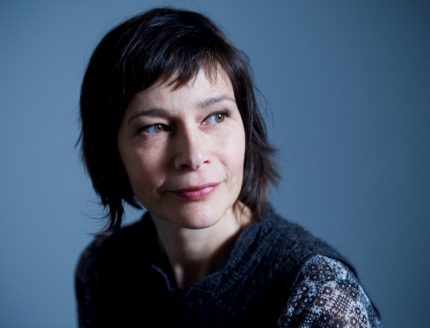French soprano makes a worthy Chicago debut in Mandel Hall recital
Compared to New York, Chicago continues to languish in its paucity of vocal recitals. Apart from the annual fall festival by the Collaborative Arts Institute of Chicago, one has to be content with the occasional offering from existing classical series.
University of Chicago Presents usually manages to serve up one art song recital each season and this year’s event came Friday night with the Chicago debut of Sandrine Piau at Mandel Hall.
The tall, slender French soprano is not well known stateside but she has carved out a notable European career in both opera and recital. Best regarded for her Baroque opera roles, she has also received accolades for her recordings on the Naïve label.
Piau offered a generous selection of French chanson and German lieder Friday night built, rather loosely, around the theme of dreams.
Her opening Chausson set made a worthy calling card. Though Piau has sung high roles like Cleopatra, at 51 her voice now seems almost like that of a mezzo—refined, dusky-toned yet flexible. Her gracious vocalism set the tone for the evening with refined phrasing, ease of production and agility, etching the romantic regret of “Le charme.” Her ensuing Mendelssohn set deftly contrasted the nocturnal melancholy of “Nachtlied” with the elfin sprites of “Neue Liebe” and the witchy spells of “Hexenlied.”
Yet as the evening unfolded, Piau’s singing felt rather impersonal and generalized in expression. Part of this may be due to the straitened range of color in her soprano instrument, as well as songs that centered in the middle of the voice.
Still, one often wanted more interpretive specificity and a deeper response to the text. While she brought some whimsy to the child-song settings of Poulenc’s cycle Courte paille, the more serious songs were little differentiated from those that followed from Berg and Debussy. Too often an elegant, dispassionate blandness prevailed.
Oddly, the most success of the evening came in Richard Strauss’s Mädchenblumen. In this rarely heard mini-cycle, which charmingly likens flowers to women’s graces, Piau was a much more involved presence, singing with greater nuance and personality, as in her lovely rendition of “Kornblumen” and rapt rendering of “Epheu.”
Susan Manoff proved a versatile keyboard partner, sensitive in the more inward settings and displaying characterful virtuosity in the faster selections. But the American pianist needs to rein in her theatrical exuberance; Manoff’s flamboyant arm gestures, grinning and facial expressions often proved a distraction, upstaging Piau’s more restrained stage demeanor.
The reordering of Piau’s final Poulenc set was done, said Manoff, to reflect “today’s world.” Whatever political points were made, ending the evening with the downbeat “Sanglots” (“the joyful return of the happy emigrants”) proved a less effective closer than the charming waltz-song “Les chemins del’amour” would have made.
Piau offered encores of Debussy’s “Fantouches” from Les Fetes Galantes and Ivor Gurney’s “Sleep.”
The University of Chicago Presents series continues with the American String Quartet and author Salmon Rushdie 7:30 p.m. February 24 at Mandel Hall. chicagopresents.uchicago.edu
Posted in Performances



